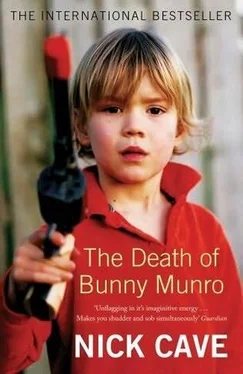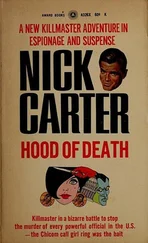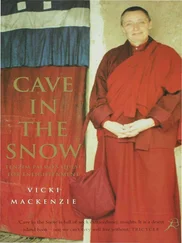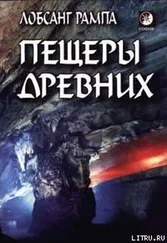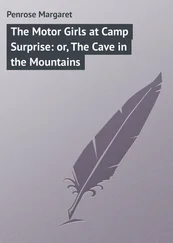Bunny can see his son waiting for him at the edge of the pool, in a hoop of light thrown down by the streetlamp. His flip-flops are placed carefully beside him and he trails his feet, thoughtfully, in the water.
‘Hi, Dad,’ says the boy.
‘Hi, Bunny Boy,’ says his father.
Bunny puts his hand lightly upon his son’s head and runs his fingers through his hair.
‘Check this out,’ says Bunny. ‘Come on.’
The boy climbs to his feet, looks up at the heavens and makes an unsolicited observation about the sky looking like a giant swimming pool full of black ink and stars, then follows Bunny over to the brightly coloured electric children’s train sitting on its silver tracks. He trails puddled footprints of pink water behind him, the moon duplicated in each of them – the police sirens, the ambulance sirens, getting louder.
‘I remember this from when I was a kid,’ says Bunny, and he climbs into the front carriage. ‘Hop in,’ he says.
Bunny Junior climbs up next to his father and makes himself comfortable and Bunny points to the train’s control panel and its big yellow plastic key.
‘See that key?’ says Bunny. ‘Turn it.’
Bunny Junior looks up at his father, his lips pressed together, and feels a fluttering around the region of the heart.
‘Don’t be afraid,’ says Bunny, ‘this time you’re driving,’ and places his hand on the boy’s head.
Bunny Junior reaches down and turns the big yellow key and the little train springs to life and it begins to shunt along its tracks. Bunny throws his arm around the boy and the child smiles wide and begins to laugh. The train circles the swimming pool and Bunny Junior sees reflected in its waters all the treasures of heaven and he looks at the rain dripping off his father’s head and he feels the rain running down his own face and the boy starts to laugh out loud. Bunny rings the train’s silver bell and Bunny Junior rings the silver bell and scarlet blood flows down the gutters and from one end of the Holiday Camp to the next can be heard the laughter of a father and son and the ringing of silver bells.
As the train completes its circuit and slows to a halt, Bunny asks the boy, ‘Do you want to go again?’
Bunny Junior looks at his father and reads his face and shakes his head, and says, ‘No, it’s OK, Dad.’
He watches his father climb out of the train.
‘Come on, I want to sit by the pool,’ shouts Bunny. ‘It’s much too loud here.’
Together they walk back to the pool. Bunny takes his shoes and socks off and dangles his feet in the rain-pocked water as Bunny Junior sits down beside him. Bunny puts his arm around his son, squinting into the sudden white headlights.
‘Ah, Bunny Boy,’ he says, and draws him close and presses his lips into his hair and breathes in his pungent, little-boy odour.
‘Fuck,’ says Bunny, quietly, and shakes his head.
Bunny Junior reads his father’s face some more and sees the raised white scarring like a lace handkerchief at his throat and thinks he smells the tang of scorched flesh and sees the water pooling all around him.
‘I’ve got to lie down a minute,’ says Bunny, but the boy can’t hear him for the screaming umbrellas.
By the edge of the pool – and in slow motion – Bunny falls away and lies upon his back, his feet dangling in the riffled water. The boy reaches over and strokes his father’s brow.
‘I’m going to close my eyes for a bit,’ says Bunny, clutching for a moment at Bunny Junior’s T-shirt.
Bunny Junior leans down and kisses his father.
‘No, don’t close your eyes, Dad,’ he says softly and kisses him again.
Bunny shuts his eyes, his arms relaxing at his sides.
‘Just for a bit,’ he says. ‘It’s better.’
‘No, don’t close your eyes, Dad,’ says the boy.
Bunny tilts his head away and he opens his eyes again for a fraction of a second and sees Penny Charade, the twelve-year-old girl he met at Butlins when he was a boy, dressed in her yellow polka-dot bikini, her long wet hair hanging down, sitting on the other side of the swimming pool, her caramel-coloured legs moving the surface of the water. She smiles at Bunny with her violet eyes.
‘I just found this world a hard place to be good in,’ says Bunny, then closes his eyes and, with an expiration of breath, goes still.
‘Oh, Daddy,’ whispers Bunny Junior.
The rain hammers down and black thunderheads boom and send lightning crackling across the sky. The crowds weep and scream from under their dripping umbrellas and beneath the canvas awning of the café on Western Road. Bunny Junior lays his head down on his father’s chest and puts his arms around his neck and kisses him a final time.
He looks behind him and sees the maroon concrete mixer truck on its side. He sees the sheared tattooed arm dangling by a cord of skin tissue from its window. He sees the mangled Punto, wrapped in folds of smoke and steam, its passenger door hanging open. He feels the sting of his grazed hands and knees. He sees his blackened encyclopaedia lying on the road, curling grey smoke. He hears the last soft beat of his father’s heart.
‘Oh, Daddy,’ he says.
The boy wipes the blood and the storm from his father’s face and sees rushing towards him through the curtain of rain, in slow motion – just like life – the emergency services, with sirens whooping and lights screaming, and ambulance drivers in their streaming rubberised jackets and firemen with water running from their golden helmets and police officers with their heavy utility belts, in slow motion, rushing headlong towards him – just like in life – and the paramedics with their clattering gurneys rushing and rushing towards him and the leaden rain coming down, and the awed and weeping crowd, like statues, but, in their way, full of noise and rushing too – just like life – all suddenly clamouring, like a vast agency of protection, for the boy’s attention.
Bunny Junior watches a policewoman with long blonde hair trailing behind her like moulded plastic and her radio transmitter squelching its own private language and her warm, merciful, adult face smiling down at him as she kneels on the street and says, ‘Come on, little man, let me help you,’ and Bunny Junior gently pushes her outstretched hand to one side and, standing, stands up above.
I would like to thank John Hillcoat for providing the original spark for this novel and Doug Leitch for his generosity and local knowledge. Also Simon Pettifar, Warren Ellis, Tony Clark, Rachel Willis, Brock Norman Brock, Sebastian Horsley, Ray Winstone, the Bad Seeds, Jamie Byng and my editor Francis Bickmore for their advice, support or unwitting influence.
I would also like to thank Kylie Minogue and Avril Lavigne with love, respect and apologies.

***

